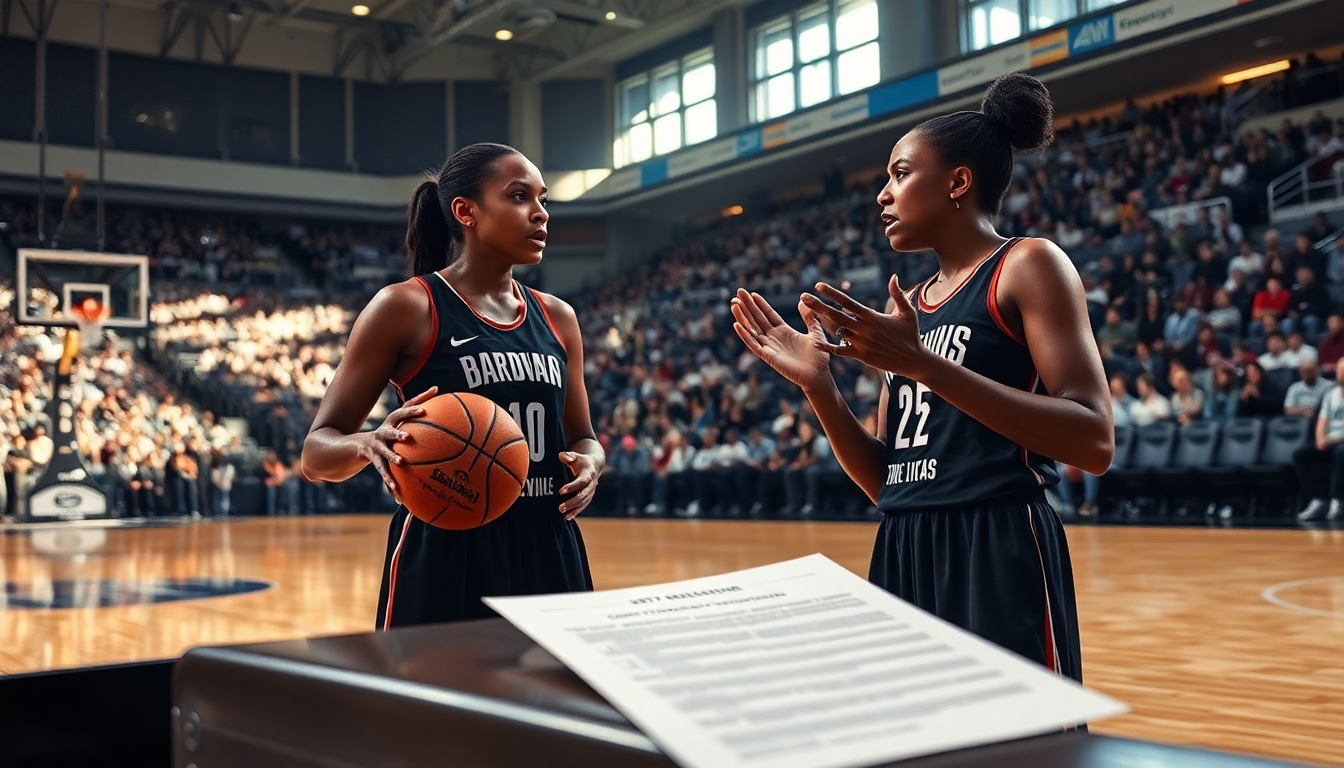Table of Contents
The landscape of women’s professional basketball is changing fast, and it’s not just about the game anymore. Players like Angel Reese are stepping up, demanding fair pay and respect in contract negotiations. Recently, Reese, a standout in the WNBA, didn’t hold back her thoughts on the league’s latest collective bargaining agreement (CBA) proposals, describing them as outright disrespectful.
And she’s not alone—many players are echoing her call for better financial security and recognition for their hard work in the sport.
The Current Negotiation Context
When it comes to professional sports, collective bargaining agreements are vital. They shape the relationship between players and league officials.
During the WNBA All-Star weekend, Angel Reese, the star forward of the Chicago Sky, shared her disappointment with the league’s proposal, insisting it fell short of what players deserve. “We need to speak up,” she emphasized, suggesting that silence would only signal indifference to their struggles.
Reese’s frustration reflects a growing trend in the league: players are increasingly willing to advocate for their rights. The WNBA, with its passionate players and dedicated fan base, has seen a notable rise in viewership and attendance, especially during games featuring stars like Reese and Caitlin Clark.
This surge in popularity highlights the urgency for the league to seriously consider the players’ concerns.
In discussions with league officials, Reese and her teammates voiced their dissatisfaction with the current negotiations, which haven’t produced satisfactory results. The palpable frustration among players is evident as they push for an agreement that truly recognizes their dedication and efforts.
Reese’s sentiments resonate with other prominent players, including Sabrina Ionescu and Satou Sabally, who have also criticized the league’s recent CBA offer.
Why Player Advocacy Matters
As the CBA discussions unfold, the importance of player advocacy stands out more than ever.
Reese and her peers aren’t just fighting for immediate benefits; they’re working to pave the way for future generations of female athletes. Having experienced players who understand the intricacies of these negotiations is crucial for fostering a more equitable environment in the league.
Reese has even hinted at the possibility of players sitting out games to demand better salaries, underscoring the urgency of their demands. Many WNBA players face financial challenges, and Reese herself revealed that her rookie contract barely covers her living expenses—a stark reality for many in a league where pay has historically lagged behind that of male athletes.
The players’ union’s choice to opt out of the current CBA was a significant move, showing their commitment to securing better terms. With a year left before the current agreement expires, both sides are under pressure to reach a deal that satisfies the players’ demands while ensuring the league’s sustainability.
Looking to the Future: What Lies Ahead for the WNBA
The current situation in the WNBA mirrors broader societal shifts toward gender equality and fair treatment in the workplace. As women athletes break barriers and gain recognition, the pressure on leagues to provide equitable compensation is mounting. The outcome of these negotiations will not only affect the players involved but also set a precedent for future contracts and labor relations in women’s sports.
WNBA Commissioner Cathy Engelbert has described the dialogue with players as constructive, but the road to a transformative agreement remains complicated. The stakes are high, as both sides must balance their priorities while fostering an environment that encourages growth and success.
Ultimately, how these negotiations play out will have lasting effects on the WNBA and its players. As the league continues to rise in prominence, the demand for fair treatment and compensation for its athletes will become a defining characteristic of its evolution. The commitment shown by Angel Reese and her fellow players reflects their dedication not only to improving their own circumstances but also to creating a better future for the next generation of female athletes.





